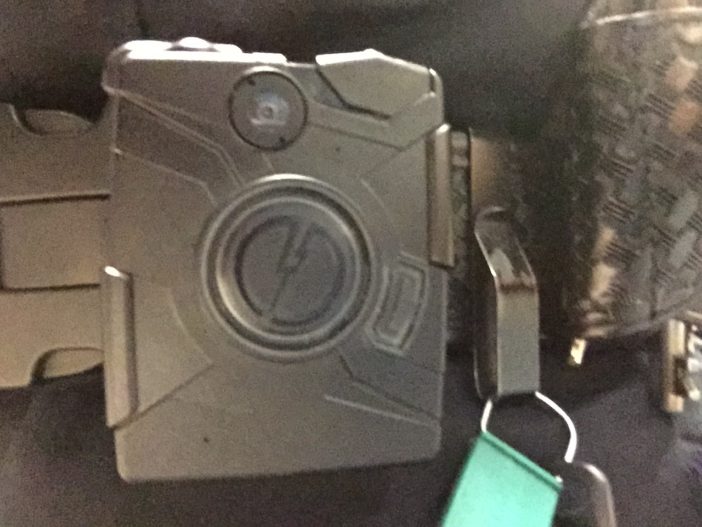It seems every week there is more controversy regarding police use of body cams and the public’s right to know. With more and more departments introducing the technology, the issues are starting to become more apparent.
Take the issue of privacy, for example. Specifically, who should see the video and how much of it should be a matter of public record?
For the record, I have been a strong proponent of making body cam videos public. Absent active investigations, protected victims and minors, I feel the sheer volume of video showing police officers doing amazing and positive things would be overwhelming.
There are few things more satisfying than showing the world the latest knucklehead doing something really dumb. Just check YouTube. There is no shortage of people behaving badly.
Every department could have their own YouTube channel with the video of the day. Remember most of these aren’t even crime related. Remember the lady who called the police because the drive thru messed up her order?
Should every contact an officer makes be made public?
Police officers engage and contact the public during the most intimate and worse moments of their lives. Should those all be open to public scrutiny?
A police manager recently shared a scenario in which officers responded to a domestic disturbance. Like a lot of disturbances, a lot of things were said with a lot of emotion and passion. Weeks later, one half wants the officer’s body cam video for possible divorce proceedings. The other half says they are entitled to privacy in their own home.
We’ve all seen the videos of people behaving badly when contacted by the police. Whether it’s because of drugs, alcohol or just plain stupidity, they have entertainment value. In an instant these videos can go viral and be shared by millions.
We all laugh, and as a retired cop I would often think good riddance. Then someone asked the pointed question I hadn’t thought of before:
So what happens to the stars of these videos? Should they have to pay the price of Internet infamy for a moment of lapsed judgment? How many employers now scan the Internet when looking at job applicants? How about the reaction of friends, family and co-workers who will be watch the video over and over again?
How long should a person have to live with their shame?
I recently watched Monica Lewinsky present a Ted Talk on shame that asked the same question. She, more than anyone, knows the consequences. “Public shaming as a blood sport has to stop,” she said. Lewinsky speaks very eloquently about the “culture of humiliation” our society now thrives on.
It says a lot about our society. After watching it, I really did feel a bit ashamed.
How about videos of homicide scenes? I think most people would say no way. How about videos of police officers being assaulted, seriously injured or even killed?
This is happening right now in Cincinnati. Officer Sonny Kim was shot and killed by a suspect who was attempting to commit “suicide by cop.” The police vehicle dash camera captured the killing of the officer. Multiple news agencies have demanded the video be made public.
His widow, Jessica Kim and her family have publicly and vocally asked the video not be shared with the media. It would only further traumatize the family of the officer and serve no purpose other than to feed the voyeuristic appetite of the public.
How many times will their teenage sons have to watch their father die? Based on the comments on the Cincinnati Enquirer’s webpage. I would say 99% of the public finds the request despicable.
Some people have advocated strongly there is never an expectation of privacy when contacting or speaking with an officer. As a street cop and investigator, I routinely extended privacy and confidentiality.
“Officer, I think my neighbors are dealing drugs. Officer, my son has warrants for his arrest. He is strung out on drugs, could you please arrest him?”
By policy, most of those confidential moments are now captured by body cams — definitely not information you would want made public. But what does the law say?
What are the guidelines we have established? Currently it’s all over the map. Every state is different.
The use of force by an officer is never pretty. Physical violence never is. There is virtually no argument that video evidence of use of force needs to be reviewed by those who oversee the agencies involved. That includes all investigative agencies and civilian oversight groups.
One side would argue that all use-of-force incidents need to be seen by the public. There needs to be an assurance that proper actions were taken. Granted, what the proper action is can be a point of contention.
Let’s say everyone agrees the force was necessary and justified. An 18-year-old knucklehead now has that moment of shame as a part of his Internet resume — forever!
The question is where is the line and how clearly is it drawn. The legislatures of every state are currently trying to update antiquated public records laws. It’s a matter of privacy and the public’s right to know.
I do hope lawmakers come up with something sooner rather than later. Whatever the decision, I know some people are not going to be happy.
Joe is a retired Anaheim Police Department captain. You can reach him at jvargas@behindthebadgeoc.com.
 Behind the Badge
Behind the Badge



